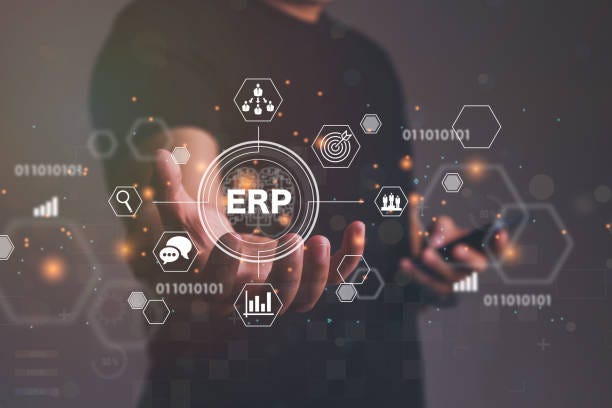Which Are Key Modules In School ERP Software?
Institutions of learning worldwide are constantly seeking ways to enhance the educational experience for their students. The key to success in these endeavors lies in the continuous monitoring of all operational aspects. However, achieving effective management can be challenging without the aid of advanced school management systems. In this digital age, Enterprise Resource Planning (ERP) software emerges as the solution that can deliver the desired results.
Understanding School Management ERP Enterprise Resource Planning (ERP) software is a comprehensive suite of applications designed to efficiently manage all tasks simultaneously. This includes administration and business process management, making it a crucial tool for educational institutions. ERP systems enable schools to set new standards and generate accurate reports that aid in making informed decisions. The current technological landscape and the increasing demand for ERP software in schools indicate its evolving role as an essential tool for the future.
For schools striving to succeed while maintaining a balance between academic and administrative tasks, a school management system is a necessity. No matter how much paper-based records are stored, they can never be entirely secure or sufficient. To address this, school ERP software can usher in a paperless era.

Key Modules in School Management ERP Software
School management ERP systems have proven to be highly efficient in fulfilling their intended functions. Supervised learning enhances an organization’s ability to detect and identify fraud or unproductive processes while also enabling informed predictions. Additionally, ERP systems provide real-time data, which, when utilized effectively, can facilitate quicker, more informed decisions, significantly expediting processes.
Here are some critical modules and features to consider when selecting a school management ERP solution:
1. Effective Task Scheduler with Proper Lesson Planning: Balancing extracurricular and co-curricular activities with mainstream subjects requires effective scheduling. A school management ERP software should assist teachers in achieving this balance by allowing them to schedule subjects and activities efficiently. Pre-planned schedules and lesson plans ensure that every activity is executed effectively within the allocated time.
2. Integrated Student Information Portal: Modern school management ERP software should feature an integrated student information portal. This portal serves as a gateway for students to access course materials, results, fee payment information, and other announcements in real-time.
3. E-Learning Modules: Given the challenges posed by the pandemic and its aftermath, a school management ERP system should include an E-learning module. This module should enable schools to conduct online classes, integrate with popular online platforms like Microsoft Teams, Zoom, and Google Meet, upload lecture notes and e-books, assign tasks, send announcements, and conduct online assessments with ease.
4. Mobile App: A school management software’s mobile app should work seamlessly across devices, offering real-time notifications, chat or query functionality, and easy integration. This enhances accessibility and user engagement.
5. Cloud-Based: A cloud-based ERP software allows staff, teachers, and students to access relevant information from any device with an internet connection, fostering efficiency and accuracy across all institution operations.
6. Resource Tracker — Stock and Asset Tracker: Efficiently tracking a school’s inventory, including computers, textbooks, desks, and projectors, is essential. An automated and flexible school management ERP software helps administrators maintain accurate records of assets.
7. User-Friendly UI: An intuitive user interface is vital for the success of any software. A user-friendly school management ERP system ensures that users, regardless of their computer proficiency, can operate it without difficulty.
8. Scalable & Flexible Software: The school management ERP software should be scalable to accommodate growing data requirements. It should also support customization to adapt to evolving needs.
9. Remote Access Capabilities: For institutions with multiple campuses or locations, remote access is crucial. The software should allow secure access from anywhere, enabling efficient management.
10. Automated Record Manager: Automating record-keeping processes, including student data, fee payments, and document management, reduces the risk of errors and facilitates quick access to information.
11. SMS and Email Integration: Seamless integration of SMS and email enables administrators to keep parents and guardians informed about daily activities, events, examinations, attendance, reports, and homework.
12. Secured System with Data Backup and Recovery: Data security and backup features are essential to protect against data loss due to software malfunctions. User-based security ensures that only authorized personnel can access data.
13. Cost and Energy Saving: A school management ERP software can streamline processes, reduce energy consumption, and save costs by automating billing, invoicing, and report generation.
14. Online and On-Site Client Support: Comprehensive online and on-site client support ensures that technical assistance is readily available when needed.
15. Free Demonstration: Institutions can request a free demonstration or trial of the ERP software to fully understand its features.
16. Billing and Invoicing: An efficient billing and invoicing system simplifies financial processes, providing parents with secure online payment options.
17. Import and Export Data: The ERP software should allow easy import and export of data, ensuring efficient data management and reducing the risk of errors.
In conclusion, as the education landscape becomes increasingly technology-driven, school ERP software is revolutionizing school administration. These systems unite complex technologies into one cohesive platform, eliminating the need for expensive, incompatible software. Educational stakeholders, including administrators, teachers, students, staff, and parents, all benefit from the capabilities of ERP software, which provides insight into educational operations from anywhere in the world. When choosing a school management ERP system, it’s essential to select one that fulfills all the school’s requirements and needs, ensuring a seamless and efficient educational experience.
Comments
Post a Comment